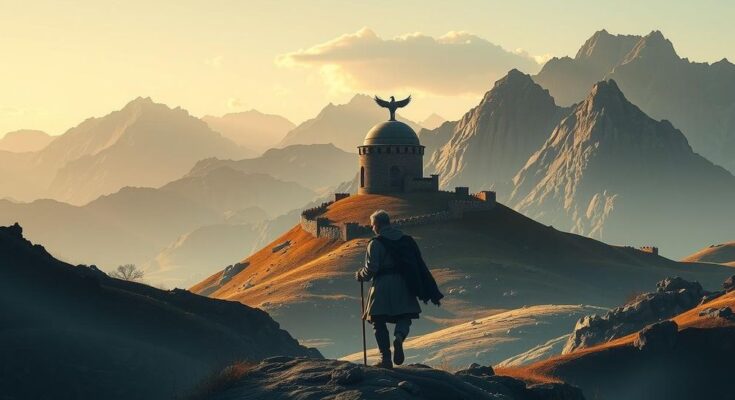M23 rebels, backed by Rwanda, claim control over Goma, escalating conflict in eastern DRC and displacing thousands. The UN reports the use of civilians as human shields and the DRC government condemns Rwanda’s actions. This situation continues a historical cycle of violence in the region, threatening a humanitarian crisis affecting many.
Fighters from the M23 rebel group, which is supported by Rwanda, have claimed to seize control of Goma, an eastern city in the Democratic Republic of the Congo (DRC). This rapid advance has led to the displacement of thousands and poses a threat of rekindling a broader regional conflict. M23 spokesperson Lawrence Kanyuka has urged residents to stay calm, stating that the operation has been executed successfully and control of the city is maintained.
As of Monday morning, the extent of M23’s control over Goma remained uncertain, although local reports indicated rebel presence in the city center. Gunfire was reported near key locations, including the airport, city center, and the border with Rwanda. The rebels had commanded local government forces to surrender by 3 AM, resulting in approximately 100 Congolese soldiers surrendering their arms to Uruguayan peacekeeping forces.
The situation in the DRC’s eastern borderlands is volatile, marked by various rebel factions stemming from historical conflicts, particularly following the Rwandan genocide in 1994. M23 is noted as the latest uprising by Tutsi-led forces in this region. Recent statements from the UN highlighted the entrance of M23 fighters into Goma’s outskirts, causing widespread panic among residents as they reportedly utilized civilians as shields.
DRC’s Foreign Minister, Thérèse Kayikwamba Wagner, has condemned Rwanda’s actions, describing them as outright aggression against the DRC. In contrast, Rwanda’s UN ambassador, Ernest Rwamucyo, refrained from confirming DRC’s allegations but suggested that the crisis stemmed from the DRC government’s failure to achieve peace.
M23’s goal, as stated by the group, is to safeguard the ethnic Tutsi community in the DRC. The group previously occupied Goma in 2012 but retreated after international financial sanctions against Rwanda. Their re-emergence and growing support from Rwanda since late 2021 pose significant concerns, exacerbating an existing humanitarian crisis affecting one-third of North Kivu’s population accordingly to UN reports.
The eastern region of the Democratic Republic of the Congo has historically been a battleground for various rebel groups, particularly following the fallout from the 1994 Rwandan genocide. The M23 movement is a significant player in this landscape, representing Tutsi interests and emerging as a prominent force amidst ongoing regional instability. With past occupations of Goma and a resurgence since 2021, M23’s actions are indicative of deeper ethnic and geopolitical tensions within the DRC and its neighboring countries, especially Rwanda.
The claim by M23 rebels to have captured Goma underlines the escalating conflict in eastern DRC, driven by historical grievances and regional tensions. The situation remains precarious, with many civilians affected and the looming threat of a wider humanitarian crisis. The international community must closely monitor these developments and advocate for peaceful resolutions to ensure sustained stability in the region.
Original Source: www.theguardian.com




